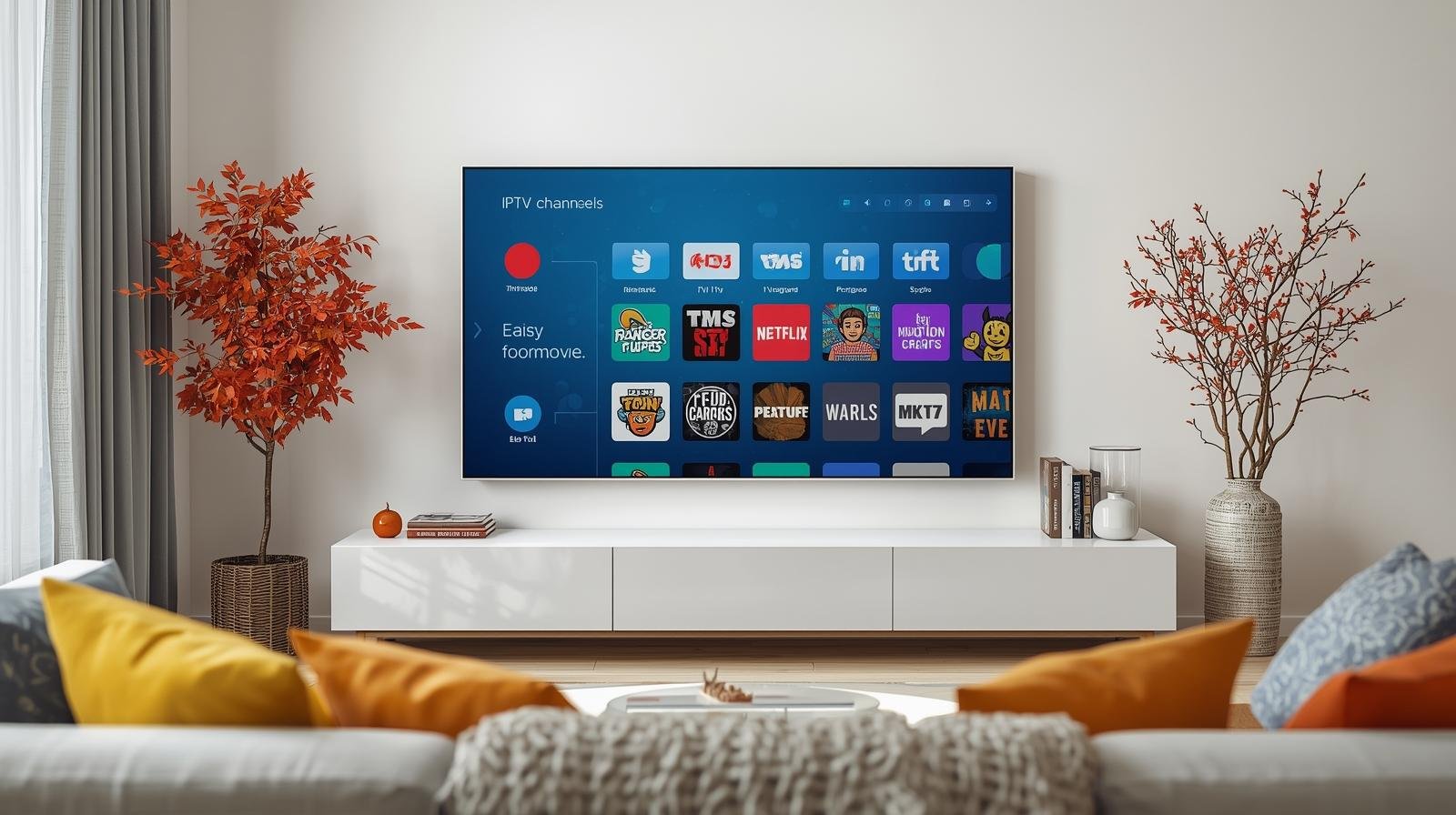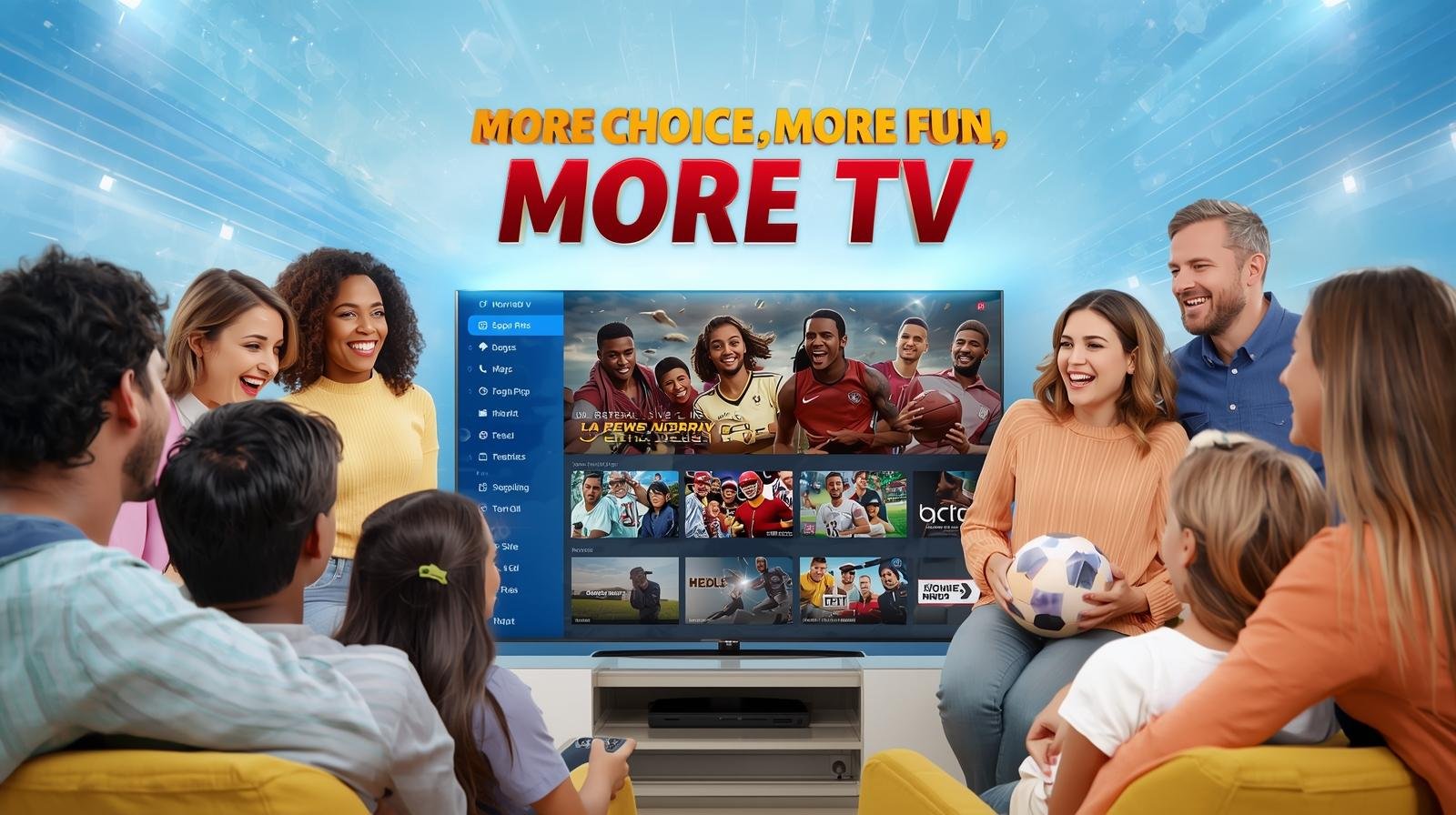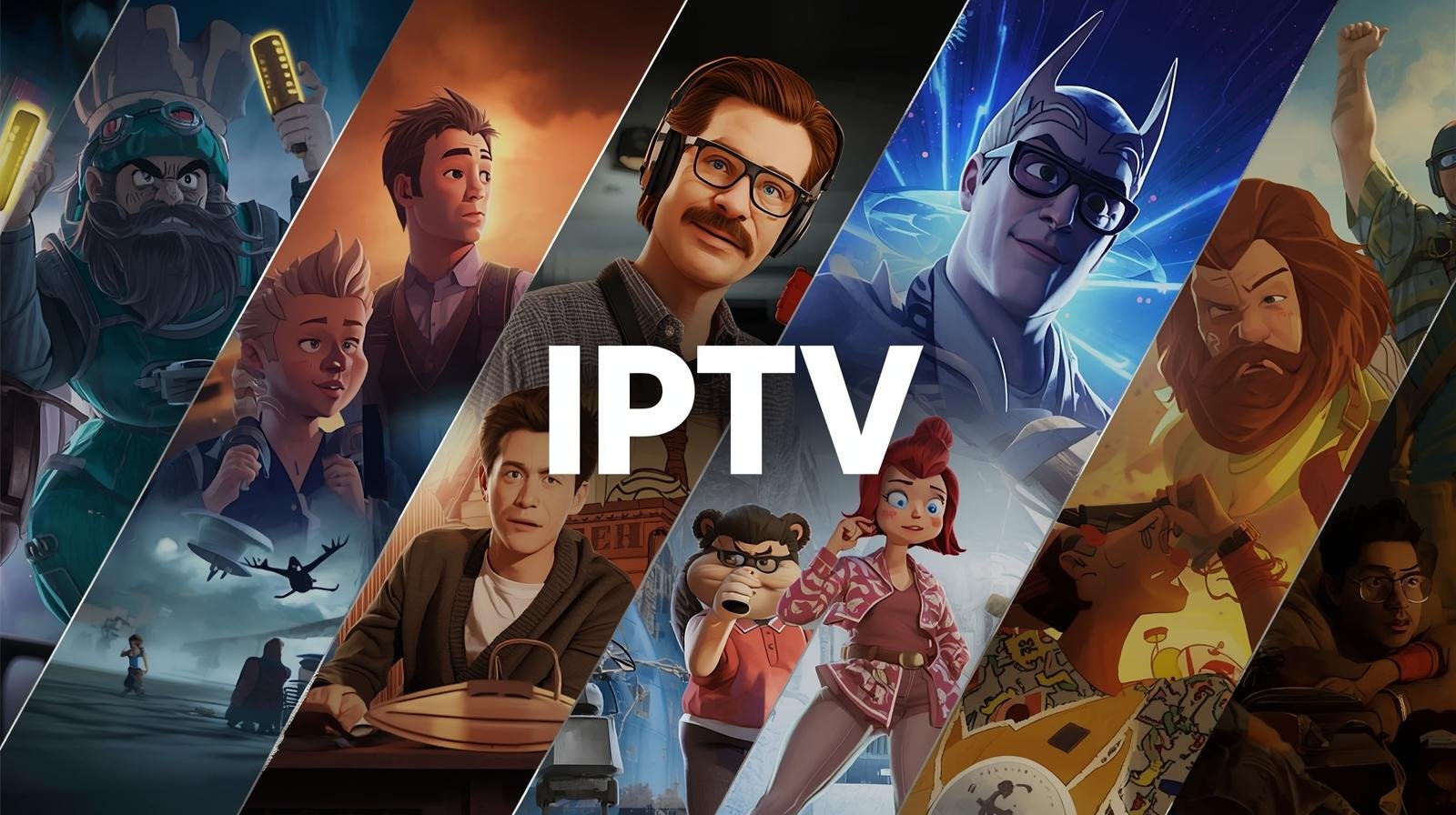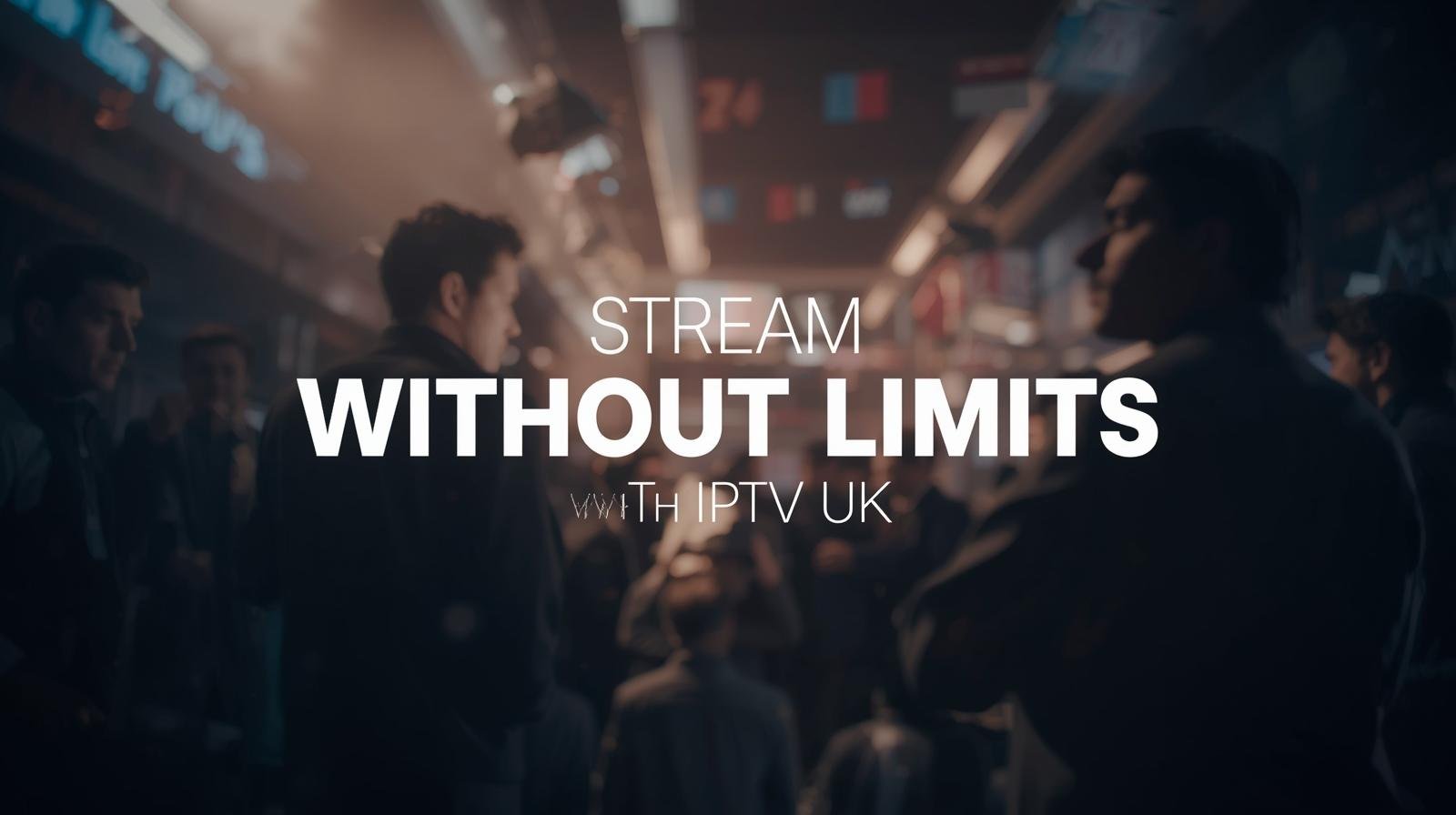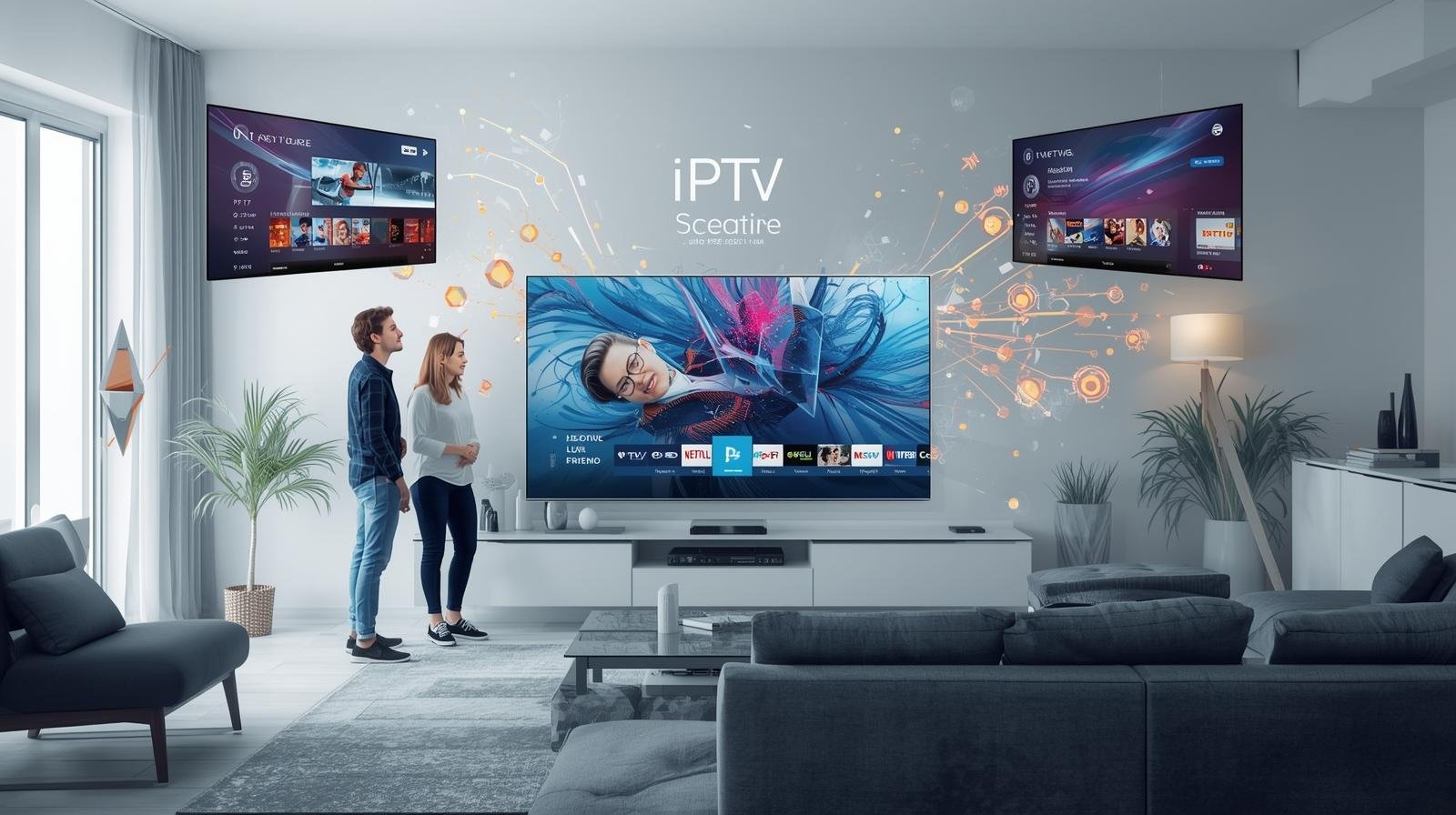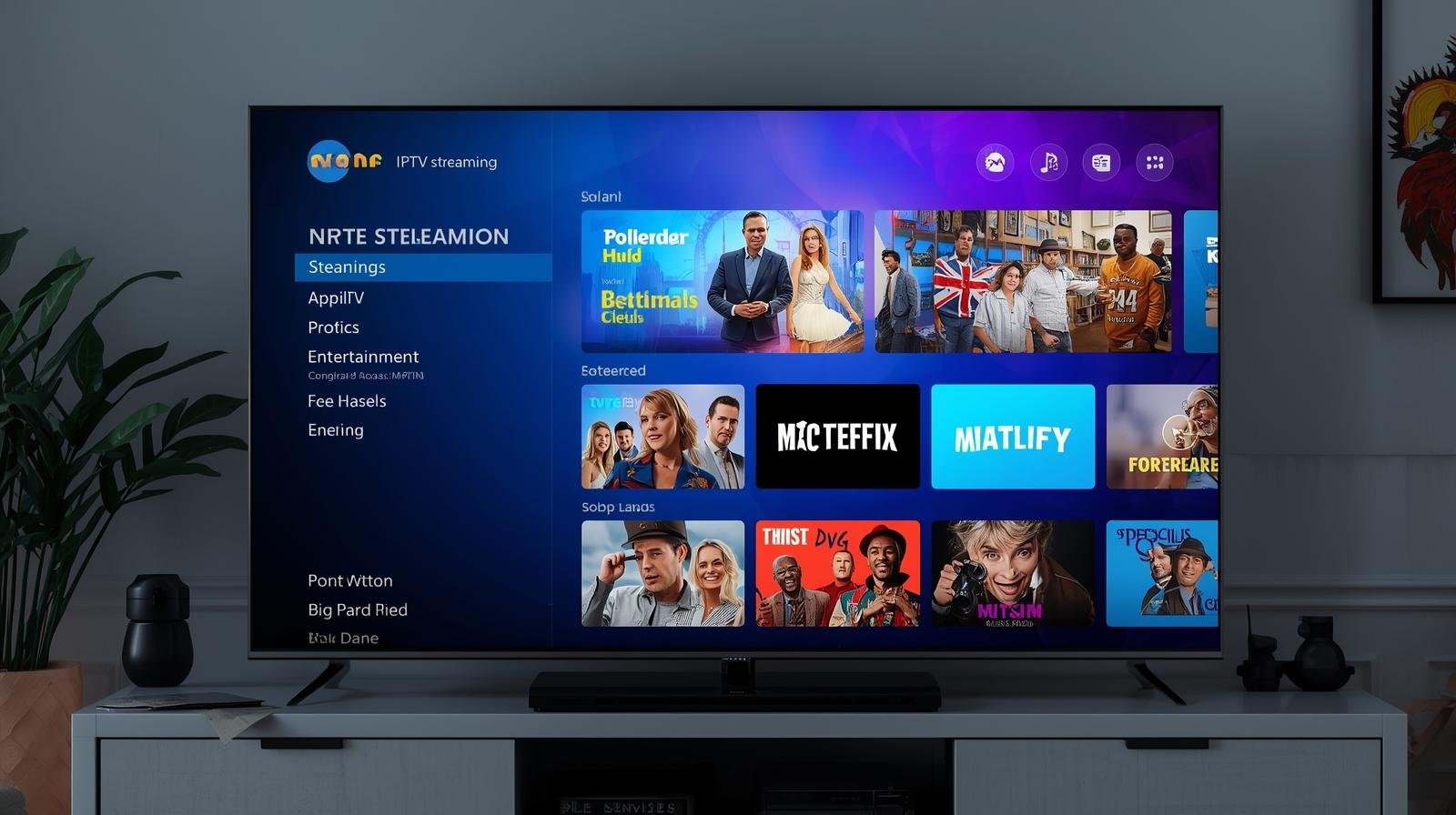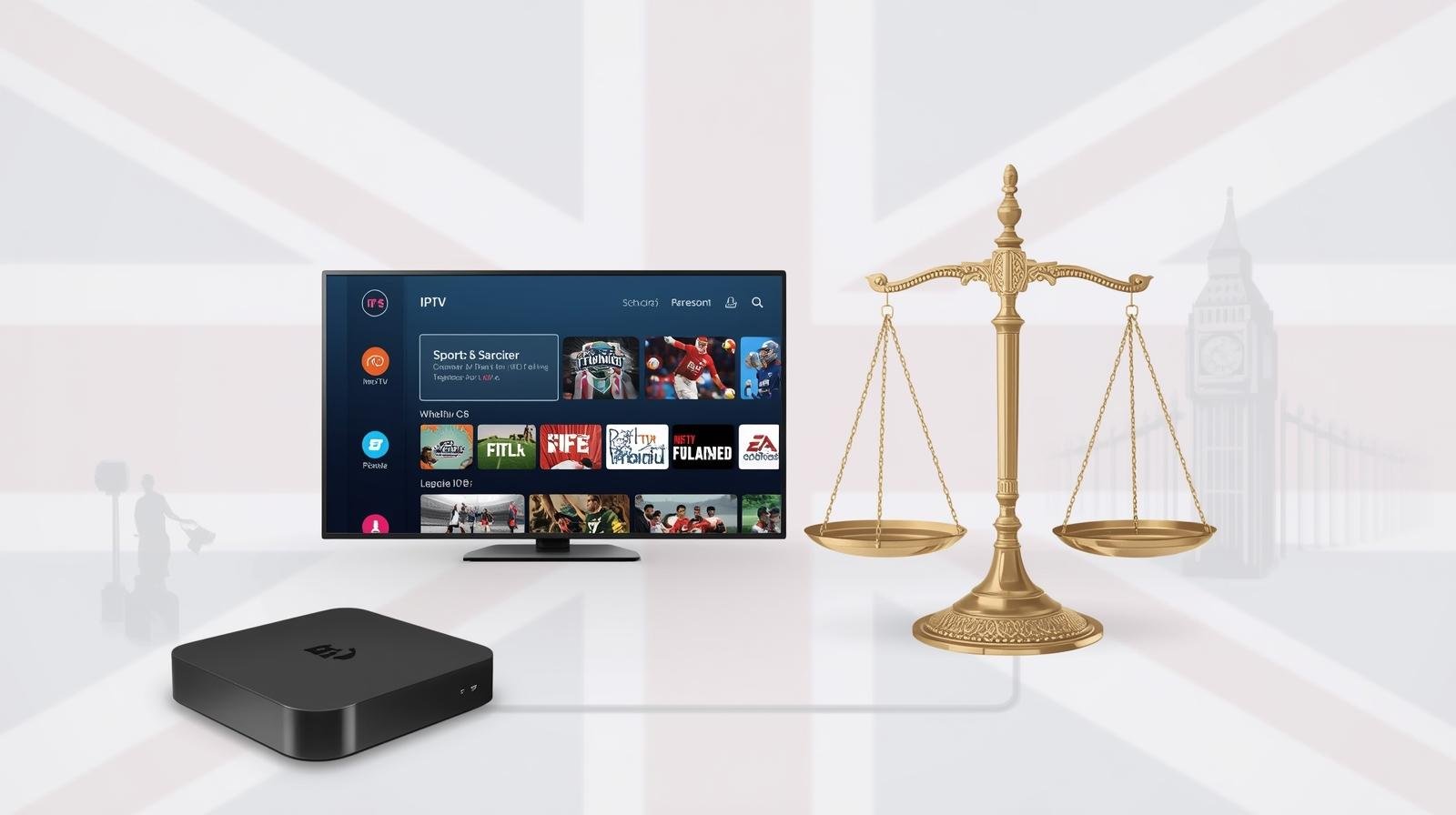The way British families watch TV has changed dramatically over the last decade. Cable Losing to IPTV. Once, cable and satellite packages — with their set-top boxes, long contracts and huge channel line-ups — were the default. Today, increasing numbers of households are moving to IPTV (Internet Protocol Television): television delivered over broadband.
This article explains why that shift is happening, what families gain (and sometimes lose), and how to switch smartly. It’s practical, evidence-based, and written for real families who want better value, more control and fewer headaches. Expect device recommendations, cost comparisons, parental-control tips, real-family examples, and a step-by-step switching plan.
1. The big picture: what IPTV is and why it matters to families
IPTV simply means TV delivered via the internet. It covers a wide range of legal services: Freeview Play and broadcaster apps (BBC iPlayer, ITVX), subscription streamers (Netflix, Amazon Prime Video, Disney+), operator OTT products (Sky Stream, NOW), FAST channels (Pluto TV, Samsung TV Plus), and sports bundles through Discovery+ or NOW. Cable Losing to IPTV.
Why this matters to families:
- Flexibility — pay monthly, cancel monthly; no long 12–24 month deals unless you want them.
- Cost — pick and choose what you want; no paying for hundreds of channels you never watch.
- Device freedom — watch on smart TVs, phones, tablets, or cheap streaming sticks.
- On-demand & downloads — hit shows available instantly, and many services let you download for offline viewing (handy for travel, commutes and kids).
- Better parental controls and profiles — most streamers offer child profiles and PIN locks.
Cable used to bundle everything and force households to pay for what a minority watched. IPTV unbundles the experience and hands control back to consumers — a convincing advantage for budget-conscious families.
2. Cost: real savings (and how families actually save)
One of the biggest reasons families switch is money. Let’s break down the cost argument clearly and practically.
Traditional cable/satellite costs (typical)
A comprehensive cable/satellite bundle in the UK — think premium sports, movie channels, box sets and broadband — often lands in the £60–£120/month range after equipment and delivery are included. Historically, contracts can be 12–24 months, and promotional prices often jump substantially on renewal.
IPTV-style stack (example)
A family might choose:
- Freeview Play & broadcaster apps — £0/month (baseline).
- Amazon Prime (for films, family content & shopping perks) — £8.99/month (or student/annual discounts).
- Netflix Standard or Disney+ — £8–£14/month depending on plan.
- NOW Sports for key football months — £34.99/month only when needed.
If a family rotates subscriptions seasonally, they could average £15–£40/month over a year — often half or less than cable. The key is rotation and mixing free catch-up services with a small number of paid apps.
Hidden savings
- No installation fees.
- No expensive set-top boxes for every TV.
- Fewer late fees or early-termination charges.
- Buying a cheap streaming stick (one-off £25–£50) instead of subsidised but contract-bound boxes can be cheaper long-term.
Real family example (illustrative)
The Parkers were paying £95/month for a cable bundle with sports. After switching to Freeview Play, Prime Video, Disney+ (two months a year) and occasional NOW Sports passes, they cut TV bills to an average of £32/month. Over 12 months that’s more than £700 saved — money that paid for school expenses and a family holiday. Cable Losing to IPTV.
3. Flexibility: subscribe, test, cancel — on your terms
IPTV’s subscription model fits modern family life:
- Monthly flexibility: Want Sky Sports only for the football season? Buy a NOW Sports month. Want Disney+ while a new Marvel series is out? Subscribe for two months and cancel. This a la carte approach avoids long-term commitments.
- Try before you commit: Many services offer free trials or promo months. Families can test interfaces, parental controls and streaming quality before paying.
- Device portability: Streaming accounts move with you. Students and professionals appreciate being able to sign in at a friend’s house or in student halls.
Contrast: cable contracts often lock you into a package and a price, even if your viewing habits change (kids grow up, sport seasons end, tastes shift).
4. Device freedom and low hardware cost
With IPTV, hardware is cheaper and simpler.
What you need (typical)
- A smart TV with built-in apps — or
- A low-cost streaming stick (Amazon Fire TV, Chromecast with Google TV, Roku), usually £20–£50.
- Broadband (more on speeds below).
Why families like this
- No engineer visits to install dishes or boxes.
- No need for a VHS-shaped box in every room; a stick can be moved between TVs.
- If a stick dies, replacing it is cheap vs. replacing an expensive operator box.
- Mobile and tablet viewing is built in — useful for kids’ tablets, travel and shared viewing.
Devices to consider (practical)
- Amazon Fire TV Stick 4K / 4K Max: cheap, wide app support, good for families.
- Chromecast with Google TV: excellent UI and profiles.
- Apple TV 4K: pricier but polished and long-lived.
- Smart TVs: modern sets often include Freeview Play and major apps out of the box.
A family can outfit the living room and one bedroom with two £40 sticks (total £80) and be streaming like a household paying large monthly fees — a one-off investment for years of service. Cable Losing to IPTV.
5. Content control and parental features
Families with kids often worry about content — and IPTV providers have made major improvements.
Built-in parental controls
Most major services and devices support:
- Child profiles (Netflix, Disney+).
- PIN-protected purchases (Amazon, Apple).
- Content ratings and filters.
- Time limits and downloads-only options for offline viewing.
Router-level and whole-home controls
Broadband providers in the UK (BT, Sky, Virgin, EE) include parental filters at the router level, letting families:
- Block adult or gambling categories.
- Schedule internet access times for kids’ devices.
- Monitor usage across all devices.
App-level safety
- YouTube Kids, BBC iPlayer Kids, and curated children’s sections reduce accidental exposure.
- FAST channels and ad-supported apps vary in their ad policies; check for kid-friendly ad rules.
Result: families can set up layered protections — app + device + router — giving a reassuring safety net that is sometimes simpler and more granular than traditional cable parental features.
6. Picture quality, streaming performance and broadband reality
4K, HDR and low-latency streaming are now standard talking points. Cable Losing to IPTV. Can IPTV deliver?
What families need
- For a single 4K stream: recommendation is 25 Mbps minimum.
- For multiple HD streams: 50–100 Mbps for households with several simultaneous viewers.
- Wi-Fi quality matters — a good router (Wi-Fi 5 or Wi-Fi 6) makes a big difference.
The good news
- Most UK homes on fibre now have enough bandwidth; ISPs increasingly offer cheap fibre plans.
- Major services support adaptive bitrate streaming — if your connection dips, the stream lowers quality rather than stopping.
- Popular sports and major live events are increasingly streamed in 4K by Amazon, Sky Stream and the better OTT providers.
Practical tips for families
- Buy a decent router or a mesh kit for large houses with multiple devices.
- If streaming problems persist, plug the streaming device into the router with an Ethernet adapter.
- Test your connection before cutting the cord — a house with slow or flaky broadband may want to upgrade first.
In short, the technical capability is there for most families, but successful IPTV hinges on a reliable home network.
7. Variety and choice: more content, more niches
Cable traditionally offered hundreds of linear channels. IPTV adds depth and choice instead of raw channel count.
Why that’s valuable
- On-demand libraries: classic movies, kids’ shows and niche documentaries are often just a search away.
- Niche FAST channels: hundreds of themed channels — classic sitcoms, nature marathons, retro gaming streams — appear on services like Pluto TV and Samsung TV Plus. They’re free and fit niche family interests.
- Global content: international cinema and regional channels are easier to access without expensive add-ons.
The viewing shift
Families aren’t watching more; they’re watching smarter. Instead of browsing a huge channel list, viewers use search, algorithmic recommendations, or curated FAST channels to find content they actually care about.
8. Sports and live events — the remaining sticking point
Sports is the one area where cable and satellite still have strong pull, because rights are fragmented and premium.
The current sports landscape
- Premier League, Champions League, F1 and major tournaments are split between Sky, TNT/Discovery+, Amazon and others.
- Some events are exclusive to pay-TV rights holders.
IPTV options for sports fans
- NOW (Sky’s OTT service) offers Sky Sports monthly passes; good for fans who only need limited months.
- Discovery+ covers selected football and sporting events (TNT Sports content).
- Amazon Prime holds certain live rights and has been expanding its football coverage.
Practical family strategies
- Rotate: buy a sports pass only during the season or key months.
- Share costs: split a sports month pass among friends.
- Use highlights and free-to-air: BBC, ITV and Channel 4 provide comprehensive highlights for many events.
So, while hardcore sports fans may still see some benefits from full cable packages, many families find IPTV sports options (with short-term passes) flexible and cheaper overall.
9. Reliability and support: real differences
Cable often touts reliability and customer support. Cable Losing to IPTV. IPTV support varies by provider — but for most mainstream services it’s robust.
What to expect
- Major providers (Amazon, Netflix, Sky Stream, BT/EE) offer 24/7 support and well-maintained apps.
- Free services rely on community support and help-centres, but they’re generally stable.
- Smaller third-party IPTV sellers (the illegal ones) are unreliable — a core reason to avoid them.
Practical advice
- Choose providers with a good app reputation and proven uptime.
- Keep firmware and apps updated.
- For critical viewing (e.g., live sports), test the service in advance or use a short-term paid pass.
IPTV UK has matured — most mainstream services match cable in day-to-day reliability, and the advantage of cheap replacement hardware means outages rarely lead to long-term disruption.
10. How families actually transition: a step-by-step plan
If you’re convinced and ready to switch, here’s a practical plan families use to transition smoothly.
0 — Audit your current viewing
- List the shows, channels and kids’ programmes you watch regularly.
- Note which ones are must-haves (e.g., specific sports or kids’ channels).
1 — Map content to services
- Use free catch-up apps (BBC iPlayer, ITVX, All4).
- See which paid services hold your must-have shows (Prime, Netflix, Disney+, NOW).
- Consider FAST channels for niche interests.
2 — Check broadband
- Test speed at peak time and aim for 50 Mbps+ for multiple HD streams.
- Upgrade if necessary — an upfront broadband improvement often saves more than monthly cable fees.
3 — Buy hardware
- One Fire TV Stick or Chromecast per main TV is usually enough.
- Keep one stick as a backup for portability.
4 — Trial and parallel run
- Keep the cable package active for one billing cycle while trialling IPTV options.
- Test every family member’s devices and parental controls.
5 — Cut the cord
- Once satisfied, cancel the cable package before the renewal period ends.
- Keep snapshots of billing and cancellation confirmations.
6 — Optimise
- Set up profiles, parental controls, and router-level filters.
- Calendar renewal dates for any short-term passes.
This approach limits risk and reduces the chance of missing critical content during the switch. Cable Losing to IPTV.
11. Parental controls, family profiles and healthy viewing
A family-friendly IPTV setup goes beyond cost — it must be safe and easy.
Key features to set up
- Profiles for kids and adults (separate watchlists and ratings).
- PINs for purchases and adult content.
- Time limits via device settings and router controls.
- Download policies to allow offline viewing on trains and holidays.
Behavioural tips
- Co-watch with younger kids; discuss what they watch.
- Use parental settings but also emphasise media literacy and balanced screen time.
- Schedule device-free meals and bedtime routines.
IPTV usually makes parental control simpler, because you can apply restrictions at multiple layers (app, device, router) instead of depending on one hardware box’s settings.
12. Downsides and trade-offs families should consider
Switching is not an automatic win — consider these trade-offs.
Fragmentation
- More apps to manage. Families sometimes trade high channel count for more apps to sign into.
Sports exclusives
- Some live sports and niche premium events may remain difficult to access without specific rights.
Broadband dependency
- IPTV depends on a stable internet connection; homes with poor broadband may struggle.
Potential hidden cost
- If a family subscribes to several services year-round, costs can add up to equal or exceed cable if not managed.
The smart approach is to plan a sensible mix of free services, a few paid ones, and seasonal passes for sports or big releases.
13. Real family stories (short case studies)
These mini case studies show how families made the decision and lived with it.
The Patel Family — Brighton
Cut cable to save money for a mortgage. They use Freeview Play, Prime Video and share a Netflix account with family. They buy NOW Sports passes for football season. Kids stream on tablets using pinned kids profiles; parental controls enforced at router-level. They saved £700 in the first year.
The O’Connors — Belfast
Live in a rural area with improving fibre. They replaced a ballooning cable bill with Sky Stream and Discovery+ bundle after upgrading broadband. They enjoy 4K sports and on-demand movies on Sky Stream and appreciate not having a dish.
The Lewis Family — Leeds
Three kids, family TV needs dominated by kids’ programming. Cable Losing to IPTV. They rely primarily on Disney+ and BBC iPlayer, with a cheap Fire Stick in two rooms. The parents keep one month of Netflix per year for big drama seasons. Household stress over bills decreased dramatically, and TV time is more purposeful.
14. FAQs families ask before switching
Q: Will I lose channels?
A: You may lose linear channels you solely watched on cable, but many popular shows are available on catch-up apps and streamers. Evaluate must-haves before cutting.
Q: Is IPTV legal?
A: Yes — if you use licensed services and official apps. Avoid pirate IPTV sellers that offer “all channels” at rock-bottom prices.
Q: Do I still need a TV Licence?
A: Yes — in the UK, you need a TV Licence to watch or record live TV, including via IPTV, and to use BBC iPlayer.
Q: What about elderly relatives who don’t like change?
A: Use simple remote setups, keep Freeview/linear channels for them, and add large-button remotes or pre-set profiles.
15. Looking ahead — IPTV trends families should know about
- FAST channels will grow: more free ad-supported channels will make subscription fatigue less painful.
- AI-driven curation will make discovery easier — no more endless scrolling.
- Better device standards (AV1, Wi-Fi 6) will make high-quality streaming cheaper and more efficient.
- Rights fragmentation may continue, but flexible, per-event purchasing options (pay-per-match) are likely to expand.
These trends mean that over time IPTV will become more convenient, richer in free content, and easier for whole families to manage.
16. Final verdict — is IPTV the right move for your family?
For most UK families in 2025, yes — IPTV offers compelling financial, practical and functional advantages. It places control of content and cost in the household’s hands rather than with a bundled provider. The major caveats are broadband reliability and sports rights for heavy sports households. With a little planning — checking speeds, choosing the right mix of services, and using parental and router-level controls — the move to IPTV is smooth and often transformative. Cable Losing to IPTV.
If you’re ready to explore switching:
- Start with a one-month parallel run.
- Keep your cable package for one billing cycle while evaluating IPTV.
- Use the switching plan in section 10.
That way you get the benefits — lower cost, better flexibility and more modern viewing — while safeguarding the things that matter most: kids, live sport and family routines.
IPTV FREE TRIAL
